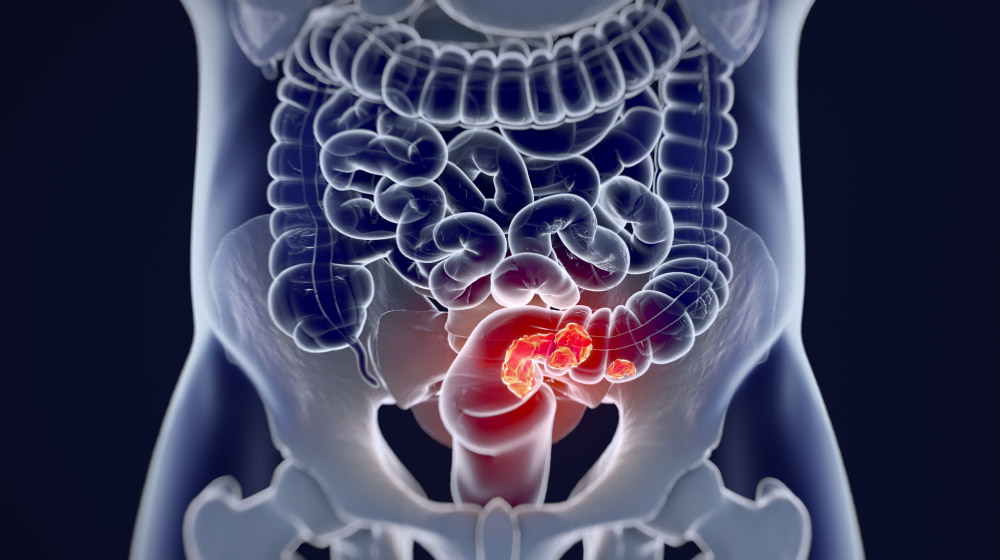Colorectal Cancer (CRC) is one of the most common cancers and the third most diagnosed cancer in the United States. It has a high morbidity and mortality rate and is expected to cause about 52,980 deaths during 2021. The risk of developing colorectal cancer is about 1 in 23 for men and 1 in 25 for women.
It is known that CRC results from a collection of genetic and epigenetic alterations of the cellular genome. Epigenetic changes are defined as non-genetic influences on gene expression. These changes do not include changes in DNA sequence but are inheritable.
Data from the past few decades has shown that these epigenetic alterations play a crucial role in CRC development. It can cause modifications in microRNA expression, DNA methylation, and histone acetylation that ends in inheritable modifications in gene expression in colorectal epithelial cells. Epigenetic biomarkers are important hallmarks of cancer, as they occur very early in disease pathogenesis and can be exploited to diagnose, prognosticate, and predict treatment response in CRC.
Recently, scientists have focussed on a particular category of epigenetic drugs to treat CRC, restoring genes to their original expression and function. The US Food and Drug Association (FDA) has approved a few of these medicines that also enhance chemo- and radio-sensitivity in CRC treatments.
One review has summarized the recent preclinical and clinical trial studies looking into the medicinal value of using epigenetic drugs as a novel approach in CRC therapy.
Read the original publication of this study here: [Epigenetic Drug Therapy in the Treatment of Colorectal Cancer]
This review aimed to summarize the recent studies involving epigenetic drugs in colorectal cancer treatment.

Epigenetic Drug Therapy in the Treatment of Colorectal Cancer
The team reviewed recent literature and studies on groups of different drugs and their effect on CRC patients in various trials.
HDACis – histone deacetylase inhibitors
This review included the following drugs:
- Resveratrol
- Suberoylanilide hydroxamic (vorinostat)
- Arginine butyrate
- Romidepsin
- Panobinostat
- Carbamazepine
- Sodium butyrate
- Plitidepsin
- Valproic acid
- Entinostat
- Droxinostat
- Resminostat
- Belinostat
- SB939
In both preclinical experiments and clinical trials, HDACi were found to have potent anticancer activity. They reduce “metastasis by reducing the expression of genes involved in migration, angiogenesis, epithelial-to-mesenchymal transition (EMT), and cell survival while enhancing the expression of genes involved in apoptosis.”
Belinostat, panobinostat, romidepsin, and vorinostat have been FDA approved for use in cancer therapy.
DNMTis – DNA methyltransferase inhibitors
This group of drugs was found to fight some cancers by reducing genomic DNA methylation. DNMTis can inhibit the development of DNA methylation activity of DNA methyltransferase, which is basically responsible for copying parental DNA in cell division.
Included in this drug category:
- 5-Azacytidine
- 5-Aza-2′-deoxycytidine (also called 5-aza-DC or decitabine)
- Hydralazine
- Procainamide
- Zebularine
As well as the above two classes of drugs, a new treatment, bromodomain, and extra-terminal motif (BET) protein has emerged as a cancer therapy and suggested as more efficient when used in combination with one of the BET proteins, BRD4.
Another newly emerged anticancer agents are antagomirs. Antagomirs are miRNA inhibitors that can bind to a specific miRNA and alter its function.
Combination therapy of epigenetic drugs in colon cancer is also becoming an area of interest. However, there is not sufficient data about the favorable clinical responses yet.
Takeaways:
- Epigenetic changes, notably DNA methylation and histone modifications, have key pathophysiological roles in the initiation and progression of colorectal cancer (CRC).
- HDACi and DNMTi are both well known for their potential effect on activating the silenced genes in CRC.
- Many new treatment strategies have been provided for different types of cancers, which are using different types of epigenetic drugs in combination.
- Many of these drugs can be purified from natural sources or synthesized, meaning there is huge scope for the treatment of CRC patients.
You can read the original publication of this study here: [Epigenetic Drug Therapy in the Treatment of Colorectal Cancer]





